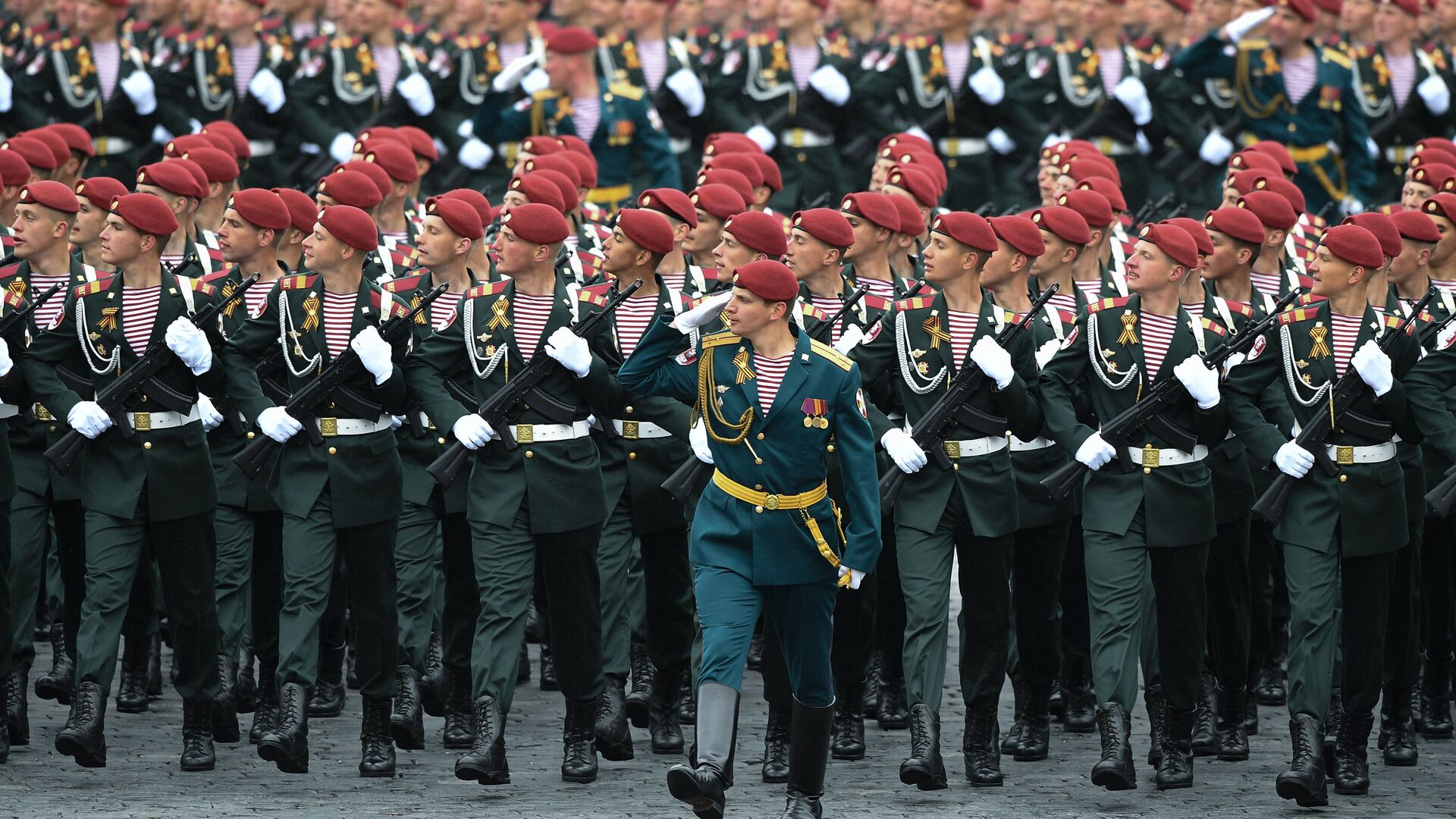https://sputnikglobe.com/20211221/academic-russian-military-has-pretty-good-tactics-acts-fast--is-very-well-equipped-1091701832.html
Academic: Russian Military Has Pretty Good Tactics, Acts Fast, & is Very Well Equipped
Academic: Russian Military Has Pretty Good Tactics, Acts Fast, & is Very Well Equipped
Sputnik International
Russian Defence Minister Serigei Shoigu held an extended ministerial meeting on 21 December and assessed the preparedness of the Rusian Armed Forces.
2021-12-21T19:17+0000
2021-12-21T19:17+0000
2022-11-03T19:04+0000
world
europe
us
russia
opinion
vladimir putin
s-400
mig-31
tu-95
kinzhal missile system
https://cdn1.img.sputnikglobe.com/img/105702/51/1057025106_0:108:3259:1941_1920x0_80_0_0_263c3871e0585be7f1fbf69e652fc191.jpg
"In general, the Russian military is considered to be an agile force, a force that is ready, that is prepared, that is able to act fast. That is a very good thing. That absolutely makes the Russian military one of the best in the world", says Dr Michele Groppi, lecturer on challenges to the international order at the Defence Studies Department at King's College, London and president of ITSS Verona.Furthermore, the Russian military has undergone a process of modernisation, Groppi notes: Earlier in the day, Russian Defence Minister Sergei Shoigu highlighted during the ministerial meeting that the Russian Armed Forces occupy a leading position in the world in terms of modernity despite being ranked ninth in terms of defence spending.He specified that the Russian Army and Navy are equipped with modern weapons at 71.2%, while the share of modern weapons in the nuclear triad of Russia has grown to a historic record and is 89.1%.The Russian Defence Ministry summit came amid soaring tensions between Moscow and Washington over Ukraine. Previously, the US and its NATO European allies speculated about Russia's apparent plan to launch an invasion of Ukraine, something that Moscow resolutely shredded as nonsense. During a high-level video conversation between President Putin and his American counterpart Joe Biden, the US president outlined a list of potential anti-Russian sanctions in the event of a military escalation in Ukraine. However, Putin warned his counterpart against pinning the blame on Russia and referred to NATO's expansionist efforts on Russia's doorstep.Groppi laments the fact that the concept of Russia's regional "sphere of influence" was recently defied by the US and NATO leadership.Thus, US Secretary of State Antony Blinken stated earlier this year that the US would not recognise Russia's "sphere of influence" in its post-Soviet neighbourhood, calling it a thing of the past. For his part, NATO Secretary-General Jens Stoltenberg claimed on 1 December that "Russia has no right to establish a sphere of influence". The remarks came in response to Moscow warning that Ukrainian and Georgian NATO membership as well as NATO's military expansion in the post-Soviet space are "red lines" for Russia.Russia is Boosting Its Defensive CapabilitiesRussia’s national security spending envisaged for 2021 was estimated at 3.1 trillion rubles (roughly $41.9 billion) – significantly less than the Pentagon's $778 billion.However, much has been done in recent years in terms of boosting Russia's defensive capabilities, according to Sergei Shoigu.In particular, a separate aviation regiment has been formed in Russia's Aerospace Forces, armed with MiG-31 aircraft carrying Kinzhal hypersonic missiles. Four modernised Tu-95MS strategic bombers were handed over to the military; aviation and anti-aircraft missile regiments were formed; 151 items of new and modernised aviation equipment were delivered to the Aerospace Forces, according to the defence minister.Meanwhile, the air defence and anti-missile defence forces have received over 30 types of weapons, including the S-400 Triumph and S-350 Vityaz anti-aircraft missile systems. According to Shoigu, the Russian military has started receiving the Inokhodets (Orion) and Forpost reconnaissance and strike unmanned aerial vehicles (UAVs). In addition to this, trials of the the Sokol Altius, a medium-altitude long-endurance unmanned combat aerial vehicle, have also been completed.The defence minister highlighted that the tests of the Zircon sea-based hypersonic cruise missile have been successfully finished, adding that the system's serial deliveries to the Russian Armed Forces will begin in 2022. It is expected that the number of Russian long-range high-precision weapons carriers will increase by 30% by 2026, while the number of cruise missiles of various types of basing will double, concluded the minister.
https://sputnikglobe.com/20211221/russian-army-is-global-leader-in-modernity-defence-minister-shoigu-says-1091698673.html
https://sputnikglobe.com/20211208/is-aggressive-us-rhetoric-against-russia-the-result-of-bidens-poor-standing-at-home--1091363298.html
https://sputnikglobe.com/20211211/did-us-learn-cuban-missile-crisis-lesson-right--could-moscow-and-washington-avert-its-repetition-1091425391.html
https://sputnikglobe.com/20211221/pentagon-struck-new-contract-seeking-ways-to-counter-russian--chinese-hypersonics-report-says-1091700632.html
Sputnik International
feedback@sputniknews.com
+74956456601
MIA „Rosiya Segodnya“
2021
News
en_EN
Sputnik International
feedback@sputniknews.com
+74956456601
MIA „Rosiya Segodnya“
Sputnik International
feedback@sputniknews.com
+74956456601
MIA „Rosiya Segodnya“
russian army, russian armed forces, nato, ukraine, russian sphere of influence, sergei shoigu, hypersonic weapons, vladimir putin, joe biden
russian army, russian armed forces, nato, ukraine, russian sphere of influence, sergei shoigu, hypersonic weapons, vladimir putin, joe biden
Academic: Russian Military Has Pretty Good Tactics, Acts Fast, & is Very Well Equipped
19:17 GMT 21.12.2021 (Updated: 19:04 GMT 03.11.2022) Defence Minister Sergei Shoigu assessed the preparedness of the Russian Armed Forces on Tuesday during an extended meeting of the Russian Ministry of Defence that was attended by President Vladimir Putin. The defence minister called the Russian military forces one of the world's leaders.
"In general, the Russian military is considered to be an agile force, a force that is ready, that is prepared, that is able to act fast. That is a very good thing. That absolutely makes the Russian military one of the best in the world", says Dr Michele Groppi, lecturer on challenges to the international order at the Defence Studies Department at King's College, London and president of ITSS Verona.
Furthermore, the Russian military has undergone a process of modernisation, Groppi notes:
"It has better equipment", says the academic. "It has pretty good tactics, which are not based on mass — having many people, as it was during the communist era, but it is based on speed. Reactiveness and something like this. I do believe they are competitive".
Earlier in the day, Russian Defence Minister Sergei Shoigu highlighted during the ministerial meeting that the Russian Armed Forces
occupy a leading position in the world in terms of modernity despite being ranked ninth in terms of defence spending.
He specified that the Russian Army and Navy are equipped with modern weapons at 71.2%, while the share of modern weapons in the nuclear triad of Russia has grown to a historic record and is 89.1%.
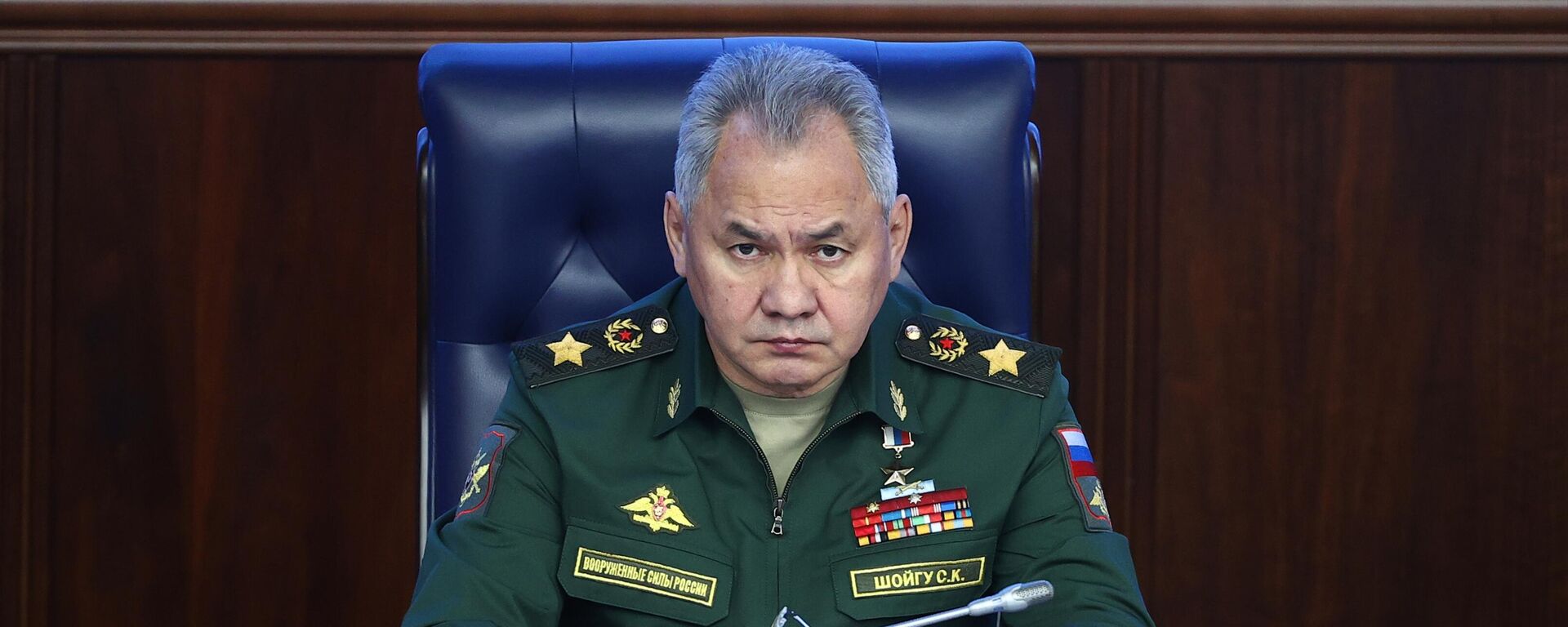
21 December 2021, 15:30 GMT
The Russian Defence Ministry summit came amid soaring tensions between Moscow and Washington over Ukraine. Previously, the US and its NATO European allies speculated about Russia's apparent plan to launch an invasion of Ukraine, something that Moscow resolutely shredded as nonsense.
During a high-level video conversation between President Putin and his American counterpart Joe Biden, the US president outlined a list of potential anti-Russian sanctions in the event of a military escalation in Ukraine. However, Putin warned his counterpart against pinning the blame on Russia and referred to NATO's expansionist efforts on Russia's doorstep.
"I believe that the consequences of potential fallout between the two parties would be devastating", the defence expert highlights, expressing hope that a direct military confrontation between the Russian and US-NATO armed forces never happens.
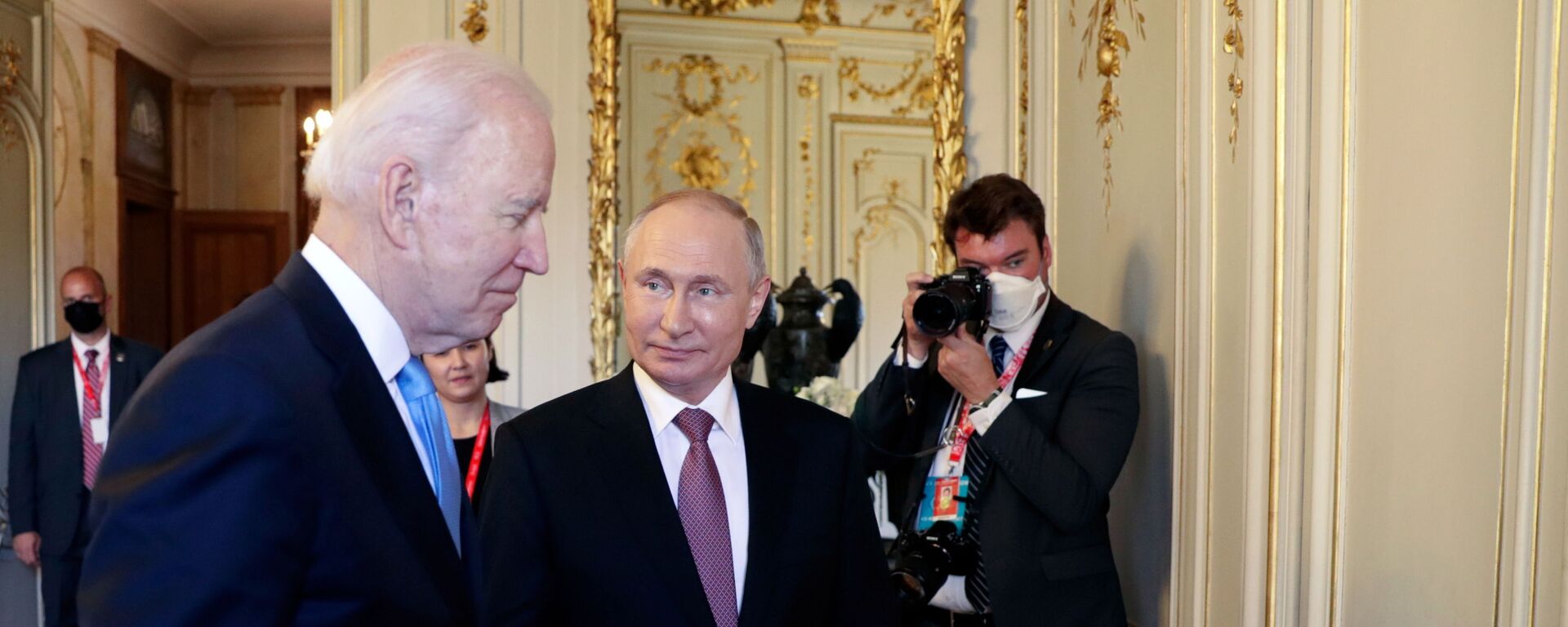
8 December 2021, 21:25 GMT
Groppi laments the fact that the concept of Russia's regional "sphere of influence" was recently defied by the US and NATO leadership.
Thus, US Secretary of State Antony Blinken stated earlier this year that the US would not recognise Russia's "sphere of influence" in its post-Soviet neighbourhood, calling it a thing of the past. For his part, NATO Secretary-General Jens Stoltenberg claimed on 1 December that "Russia has no right to establish a sphere of influence". The remarks came in response to Moscow warning that Ukrainian and Georgian NATO membership as well as NATO's military expansion in the post-Soviet space are "red lines" for Russia.
"We have to understand what the Kremlin wants and why they are thinking about that", Groppi says. "I do think they can strike a balance. I do think that things are kind of improving, but we should not provoke each other".
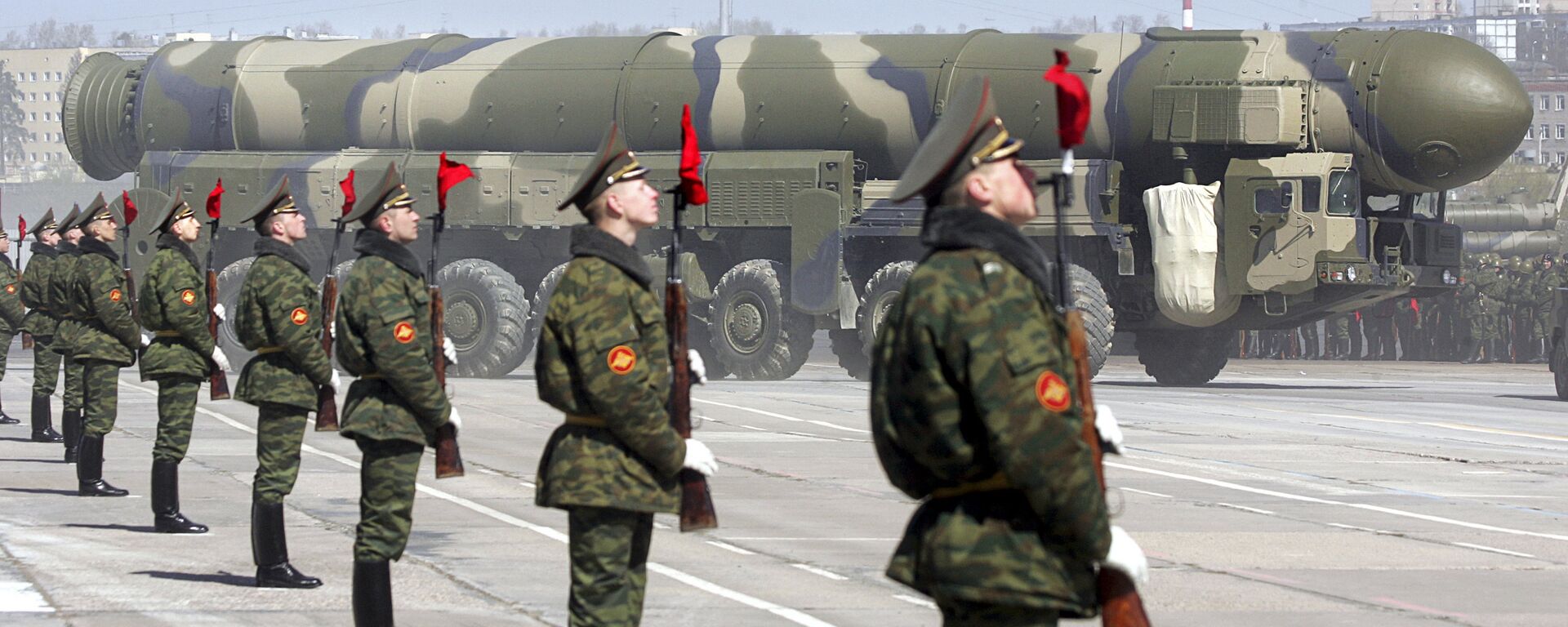
11 December 2021, 14:00 GMT
Russia is Boosting Its Defensive Capabilities
Russia’s national security spending envisaged for 2021 was estimated at 3.1 trillion rubles (roughly $41.9 billion) – significantly less than the Pentagon's $778 billion.
However, much has been done in recent years in terms of boosting Russia's defensive capabilities,
according to Sergei Shoigu.
In particular, a separate aviation regiment has been formed in Russia's Aerospace Forces, armed with MiG-31 aircraft
carrying Kinzhal hypersonic missiles. Four modernised Tu-95MS strategic bombers were handed over to the military; aviation and anti-aircraft missile regiments were formed; 151 items of new and modernised aviation equipment were delivered to the Aerospace Forces, according to the defence minister.
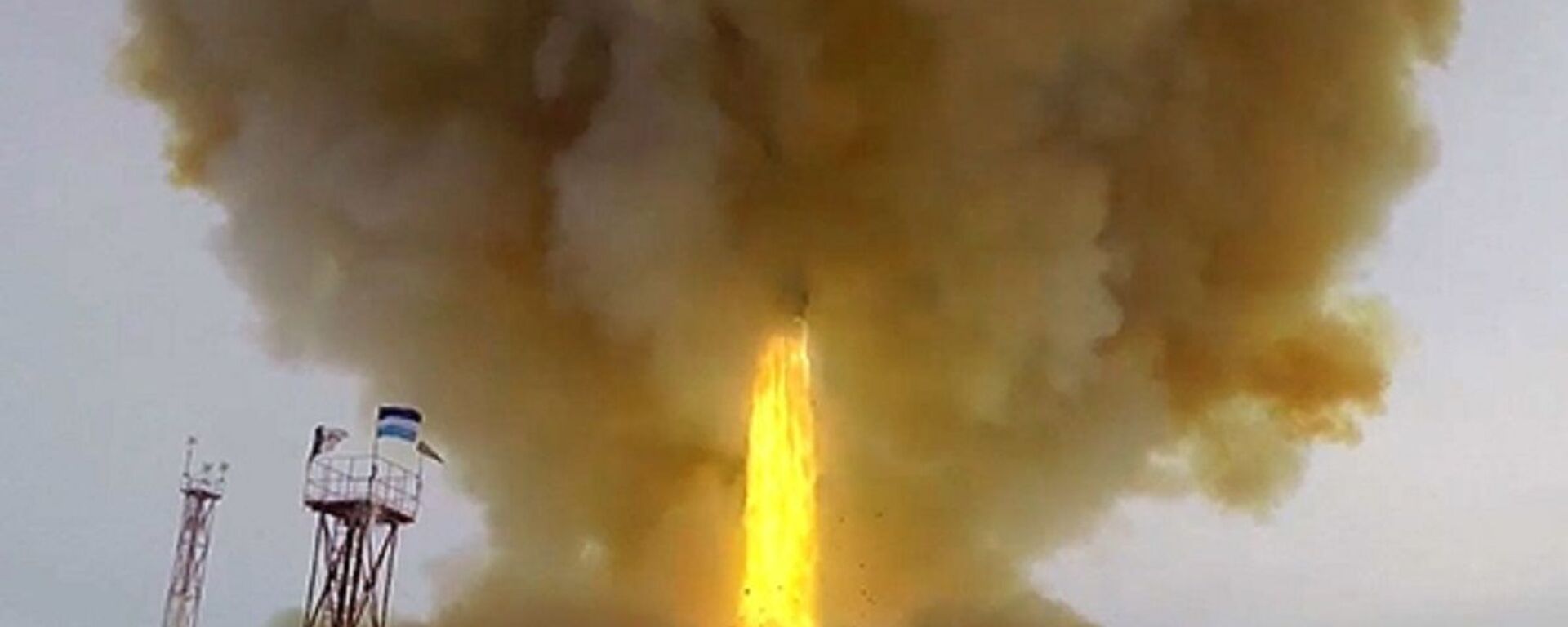
21 December 2021, 17:07 GMT
Meanwhile, the air defence and anti-missile defence forces have received over 30 types of weapons, including the S-400 Triumph and S-350 Vityaz anti-aircraft missile systems. According to Shoigu, the Russian military has started receiving the Inokhodets (Orion) and Forpost reconnaissance and strike unmanned aerial vehicles (UAVs). In addition to this, trials of the the Sokol Altius, a medium-altitude long-endurance unmanned combat aerial vehicle, have also been completed.
The defence minister highlighted that the tests of the Zircon sea-based hypersonic cruise missile have been successfully finished, adding that the system's serial deliveries to the Russian Armed Forces will begin in 2022. It is expected that the number of Russian long-range high-precision weapons carriers will increase by 30% by 2026, while the number of cruise missiles of various types of basing will double, concluded the minister.
